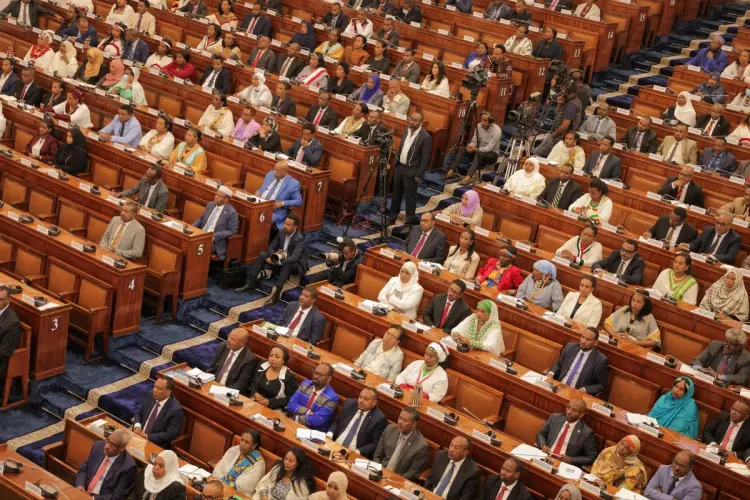Ethiopian lawmakers have approved a groundbreaking bill that allows foreign banks to operate within the country, marking a significant milestone in Prime Minister Abiy Ahmed’s economic reform agenda. The decision signals Ethiopia’s commitment to attracting foreign investment and accelerating economic growth by modernizing its financial sector.
The legislation, passed with overwhelming support in parliament, paves the way for foreign banks to establish operations in Ethiopia for the first time in the nation’s history. This move is seen as a crucial step in liberalizing the country’s tightly controlled economy and aligning it with global standards.
Ethiopia, sub-Saharan Africa’s third-largest economy, has long maintained a closed financial sector, barring foreign banks from entering its market. With over 120 million inhabitants, Ethiopia is Africa’s second-most populous nation, offering immense untapped potential for financial services.
The decision to permit foreign banking institutions comes as part of broader economic reforms initiated by Prime Minister Abiy Ahmed since he assumed office in 2018. His administration has been working to attract foreign capital, stimulate competition, and address the inefficiencies in Ethiopia’s banking sector. Previously, the country’s financial system was dominated exclusively by state-owned and local private banks, which struggled to meet the demands of Ethiopia’s rapidly expanding economy.
Ethiopia’s financial system has faced persistent challenges, including limited access to credit, a lack of technological innovation, and low banking penetration rates. Experts argue that opening the market to foreign banks will encourage the transfer of capital, expertise, and modern financial technologies, improving service delivery and strengthening the country’s financial architecture.
The entry of foreign banks is expected to drive competition and innovation, forcing local banks to modernize and improve efficiency. It also creates opportunities to attract foreign direct investment (FDI) and support critical sectors like agriculture, manufacturing, and infrastructure.
In his address to lawmakers, Prime Minister Abiy Ahmed emphasized the importance of striking a balance between liberalization and safeguarding the interests of Ethiopia’s local banking institutions. The government has outlined a phased approach to ensure the smooth integration of foreign players into the market.
“This legislation reflects our commitment to building a competitive and inclusive economy. By welcoming foreign banks, we aim to unlock Ethiopia’s full economic potential while ensuring a robust and resilient financial system,” Abiy said.
The central bank is expected to issue guidelines in the coming months, detailing the licensing process, regulatory requirements, and operational frameworks for foreign banks. Authorities have also promised to provide protections for domestic banks to ensure they are not overwhelmed by competition.
The decision to open the financial sector has drawn both praise and concern. Proponents highlight the opportunities for economic growth, increased capital inflows, and financial inclusion, particularly for rural communities and small enterprises that remain underserved by Ethiopia’s current banking system.
However, critics caution that foreign banks could dominate the market, marginalizing local players who lack the financial muscle to compete. Economist Teshome Woldesemayat argues that while foreign banks bring much-needed expertise and capital, the government must “expand capacity-building programs for local banks to ensure they can withstand the competitive pressures.”














Leave a comment